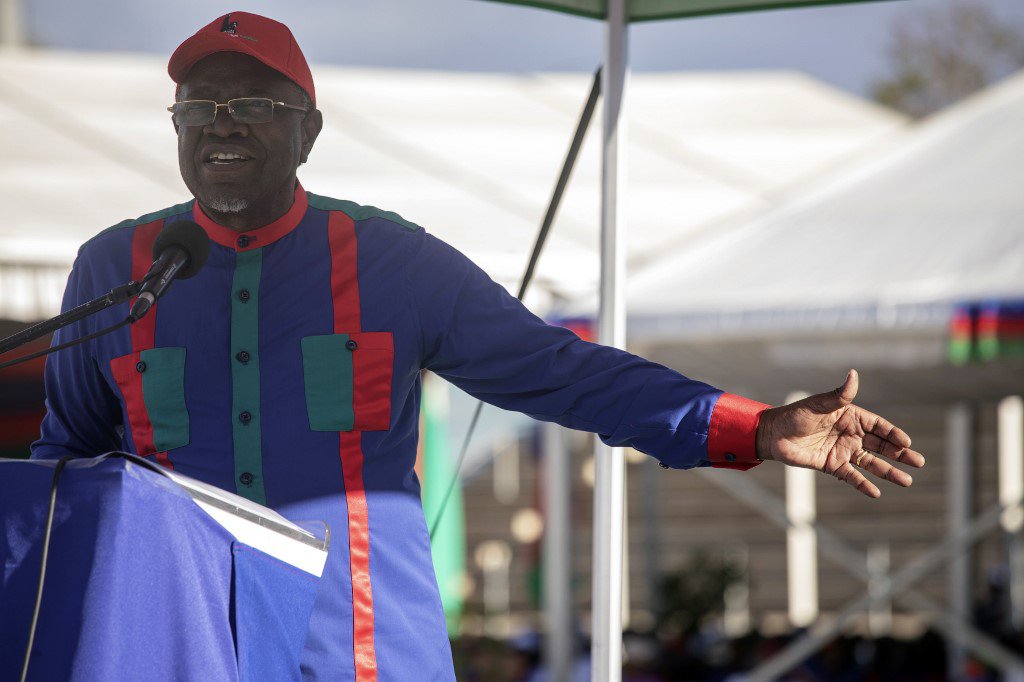Namibia's president secures second term, support drops
Updated | By AFP
Namibian president Hage Geingob on Saturday won the country's presidential elections with a diminished majority of 56.3 percent.

It's the worst performance of any ruling party candidate for nearly 30 years.
Geingob was declared president of this week's vote, retaining his position and the ruling South West Africa People's Organisation's (SWAPO) long dominance of power, despite a recession and a corruption scandal that has fuelled popular discontent.
SWAPO presidents have traditionally won by over 70 percent in presidential elections since the country's independence in 1990.
Geingob, 78, and his liberation party movement SWAPO both lost support compared to the previous national elections in the vast desert nation in southwest Africa, where he claimed a sweeping 87 percent in the 2014 election.
Accepting the results, Geingob said there was always one winner in elections but that "democracy was the biggest winner."
"It was peaceful and tough," he said.
His strongest challenger, independent candidate Panduleni Itula, won 30 percent of the vote, while the Popular Democratic Movement (PDM) candidate McHenry Venaani bagged 5.3 percent.
Itula, the country's first presidential independent candidate, won in key economic urban areas such the capital Windhoek, Walvis Bay and Swakopmund at the coast.
Itula is popular among the country's youth, nearly half of whom are unemployed and have grown frustrated with the regime.
"He (Itula) has acted as a lightning rod for frustrations and for people that are unhappy with the president," said Graham Hopwood of the Institute for Public Policy Research, Namibia's main think-tank.
Out of 11 presidential candidates, only two, including Geingob was present at the election announcement event, a clear sign of protest from opposition who have alleged electoral fraud.
The electoral commission announced SWAPO won 65 percent of the national assembly seats, down from 80 percent- losing its two-third majority in parliament.
The PDM, formerly the Democratic Turnhalle Alliance (DTA), increased its national assembly party representation from 4.8 percent to 16.55 percent, securing 16 seats, according to the electoral commission.
While the Landless People's Movement(LPM), a new political party that is tapping into people's frustrations over a lack of access to land, came third with 4.9 percent which earned them four seats.
Around 1.3 million people out of Namibia's 2.45 million inhabitants were registered to vote. Half are younger than 37 and many were born after independence.
Statistics from the electoral commission show that more than 800,000 people voted in the presidential elections, a 60 percent voter turn-out.
Show's Stories
-
LISTEN: "This is the best show I've ever seen!" - Rozanne McKenzie
As a theatre lover, this is truly high praise coming from Roz.
The Drive with Rob & Roz 2 minutes ago -
LISTEN: "I can't stand hearing about my friend's kids and husband"
How do you tell your friends the truth?
The Drive with Rob & Roz 13 minutes ago